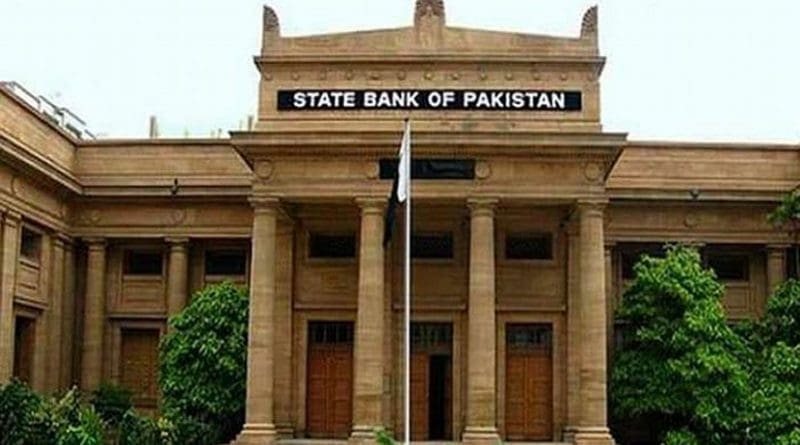Pakistan: State Bank Raises Policy Rate By 100bps – OpEd
Monetary policy settings expected to remain broadly unchanged after today’s hike of 100bps, as very close to achieving the goal of mildly positive real-interest rates on a forward-looking basis.
Moreover, FY22 projections for average inflation and the current account deficit have been revised upwards to 9-11% and 4% of GDP, respectively, taking into account the recent trend. Both projected to moderate over time.
Inflation expected to fall to medium-term target of 5-7% during FY23, largely assuming global commodity prices reverting to their historic means and the impact of the monetary measures taken so far as well as fiscal measures on aggregate demand.
Sufficient external inflows available to meet financing requirements for the current account and debt servicing, including roll-over of bilateral loans, additional SDR allocation, FDI inflows along with financing tied to the IMF program.
FY22 GDP growth expected to be close to upper end of 4-5% as activity indicators depict robust growth. Private sector credit growth has also picked-up; with contribution from SBP re-finance schemes diminishing. Consumer loan growth moderating. Moreover, concerns of a monetary overhang are low in real terms.
Exports remain encouraging mainly driven by high-value added textile. But imports have risen more sharply in FY22, driven by oil and raw material imports mainly. Other emerging markets also impacted by higher commodity prices. Elsewhere, non-energy import growth seems to have peaked. But high energy prices continue to drive the overall import bill.
In addition, one percent growth in global commodity prices leads to 0.80% increase in import growth, in case of Pakistan. Higher global commodity prices account for 70% of the increase in imports during FY22 to date. Accordingly, import-based items are also contributing to headline inflation growth.
Nevertheless, historically global commodity prices have been mean-reverting as demand and supply adjusts. This should help lower the current account deficit and inflation going forward.
Finally, the IMF program remains on track with the Government taking steps to complete prior action items in time.

